This journey map offers a visual overview of the Inclusive Innovation process for this project. The project story follows below.
Each Learning Salon engaged district leaders and BIPOC solution providers in a co-design experience to source solutions that met their needs. At the end of the process, the district emerged with solution ideas connected to the providers and created a space conducive to:
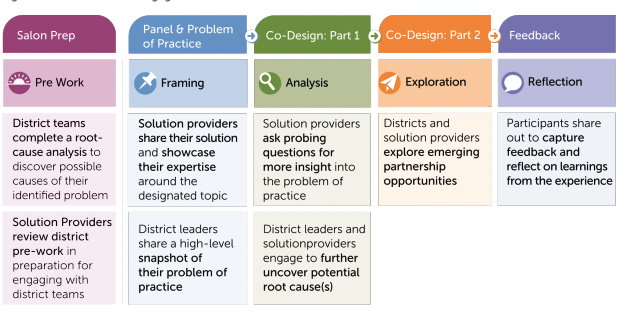
| Learning Salon Phase | Description |
|---|---|
|
Salon Prep (Pre-Work)* |
The salon prep served as a form of readiness for both district teams and providers. Districts were able to submit their problem statement and participate in a root-causes analysis in an effort to diagnose their named problem of practice. Solution providers reviewed the district’s problem statement, completed analysis, and shared a one-pager for district teams to review ahead of engaging in the salon. |
|
Expert Panel and Problem of Practice (Framing) |
The goal of the panel was to position providers as experts having the content and context understanding of the problem and bringing their lived experience to the table. A facilitator posed several questions to the panel allowing for the solution providers to demonstrate their expertise within the Salon’s theme. |
|
Co-Design Part 1 (Analysis) |
The analysis was intended to further diagnose and/or inquire of the root causes surrounding the district’s problem of practice. Having reviewed the district’s pre-work ahead of the Salon, solution providers used the analysis to uncover additional root causes and/or ask more questions to get a deeper level of understanding into their problem of practice. |
|
Solution Strategy Mapping** |
The mapping offered an opportunity for district leaders and solution providers to ideate on possible solutions to a district’s challenge outside of the scope of providers participating in the salon. |
|
Co-Design Part 2 (Exploration) |
In the exploration phase, district teams and providers were paired and explored emerging co-design opportunities. Pairing continued to rotate until each district and provider had the opportunity to discuss potential connections for co-designing a solution. |
|
Feedback |
Feedback was critical throughout the salon and showcase pilots and was integrated within the live sessions, post-Salon surveys and debriefs with district teams, providers, and partners. We were particularly interested in getting in-person immediate reactions to the experience for the most unfiltered opinions. |
| Learning Salon Phase |
Salon Prep (Pre-Work)* |
|---|---|
| Description |
The salon prep served as a form of readiness for both district teams and providers. Districts were able to submit their problem statement and participate in a root-causes analysis in an effort to diagnose their named problem of practice. Solution providers reviewed the district’s problem statement, completed analysis, and shared a one-pager for district teams to review ahead of engaging in the salon. |
| Learning Salon Phase |
Expert Panel and Problem of Practice (Framing) |
| Description |
The goal of the panel was to position providers as experts having the content and context understanding of the problem and bringing their lived experience to the table. A facilitator posed several questions to the panel allowing for the solution providers to demonstrate their expertise within the Salon’s theme. |
| Learning Salon Phase |
Co-Design Part 1 (Analysis) |
| Description |
The analysis was intended to further diagnose and/or inquire of the root causes surrounding the district’s problem of practice. Having reviewed the district’s pre-work ahead of the Salon, solution providers used the analysis to uncover additional root causes and/or ask more questions to get a deeper level of understanding into their problem of practice. |
| Learning Salon Phase |
Solution Strategy Mapping** |
| Description |
The mapping offered an opportunity for district leaders and solution providers to ideate on possible solutions to a district’s challenge outside of the scope of providers participating in the salon. |
| Learning Salon Phase |
Co-Design Part 2 (Exploration) |
| Description |
In the exploration phase, district teams and providers were paired and explored emerging co-design opportunities. Pairing continued to rotate until each district and provider had the opportunity to discuss potential connections for co-designing a solution. |
| Learning Salon Phase |
Feedback |
| Description |
Feedback was critical throughout the salon and showcase pilots and was integrated within the live sessions, post-Salon surveys and debriefs with district teams, providers, and partners. We were particularly interested in getting in-person immediate reactions to the experience for the most unfiltered opinions. |
*Created and embedded into the model after the first Learning Salon
**Exclusive to the in-person model
| Topic | Partner | Districts Represented |
|---|---|---|
|
Social and Emotional Learning and Family Engagement Districts and solution providers engage in root cause analysis and solution mapping focused on district problems of practice in social-emotional learning (SEL) and Family Engagement. |
|
California, Ohio, New York (2 districts) |
|
Mental Health and Trauma-Informed Practices The Mental Health and Trauma-Informed Practices Learning Salon is tailored for district leaders to workshop a problem of practice with solution providers who lead culturally responsive high-impact systems and programs. |
|
Florida, Pennsylvania, New York (2 districts) |
|
Real-World Learning Designed for district leaders to discover innovative, equity-first learning solutions specific to real-world application in support of students furthest from opportunity. |
|
California, Missouri, New Jersey |
|
Diverse Leaders Showcase A showcase featuring a range of BIPOC edtech entrepreneurs and solution providers actively shaping the education landscape. |
|
Various districts, non- and for-profit organizations, and funders |
|
Social Studies Designed for district leaders to discover innovative, equity-first learning solutions specific to social studies. |
|
Various districts |
|
Social Studies Uncut Showcase A showcase featuring future-forward social studies organizations specializing in resources that embody cultural relevance and reflect students’ history and experiences. |
|
Illinois, Kansas, Louisiana, Maryland DOE, Massachusetts DOE, Minnesota DOE, Nevada DOE, Pennsylvania DOE, South Carolina, Texas, Virginia, Other |
| Topic |
Social and Emotional Learning and Family Engagement Districts and solution providers engage in root cause analysis and solution mapping focused on district problems of practice in social-emotional learning (SEL) and Family Engagement. |
|---|---|
| Partner |
|
| Districts Represented |
California, Ohio, New York (2 districts) |
| Topic |
Mental Health and Trauma-Informed Practices The Mental Health and Trauma-Informed Practices Learning Salon is tailored for district leaders to workshop a problem of practice with solution providers who lead culturally responsive high-impact systems and programs. |
| Partner |
|
| Districts Represented |
Florida, Pennsylvania, New York (2 districts) |
| Topic |
Real-World Learning Designed for district leaders to discover innovative, equity-first learning solutions specific to real-world application in support of students furthest from opportunity. |
| Partner |
|
| Districts Represented |
California, Missouri, New Jersey |
| Topic |
Diverse Leaders Showcase A showcase featuring a range of BIPOC edtech entrepreneurs and solution providers actively shaping the education landscape. |
| Partner |
|
| Districts Represented |
Various districts, non- and for-profit organizations, and funders |
| Topic |
Social Studies Designed for district leaders to discover innovative, equity-first learning solutions specific to social studies. |
| Partner |
|
| Districts Represented |
Various districts |
| Topic |
Social Studies Uncut Showcase A showcase featuring future-forward social studies organizations specializing in resources that embody cultural relevance and reflect students’ history and experiences. |
| Partner |
|
| Districts Represented |
Illinois, Kansas, Louisiana, Maryland DOE, Massachusetts DOE, Minnesota DOE, Nevada DOE, Pennsylvania DOE, South Carolina, Texas, Virginia, Other |
Pilot Solution Providers: Social and Emotional Learning and Family Engagement
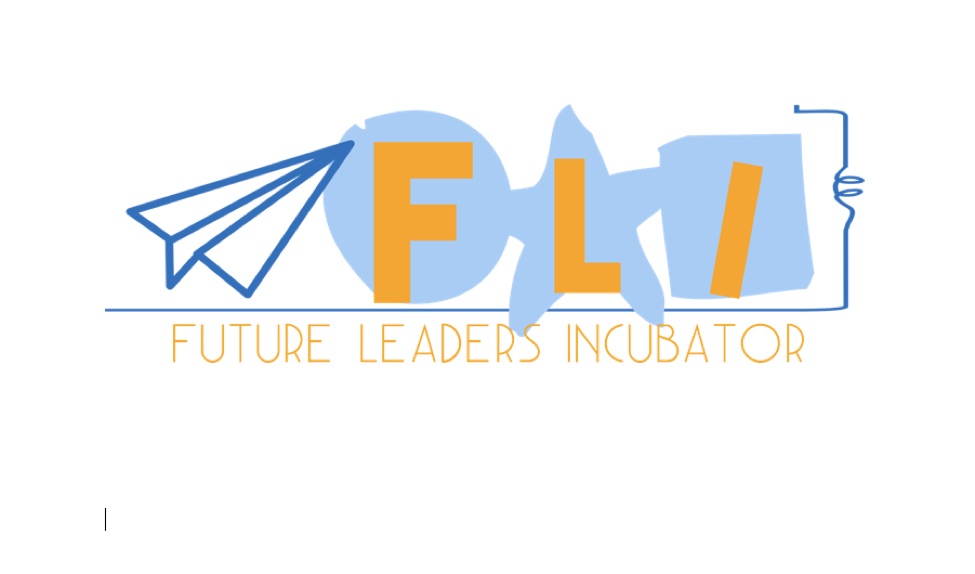
Future Leaders Incubator

DesignEDengagement
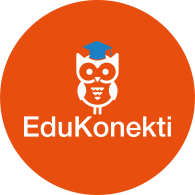
Konekti
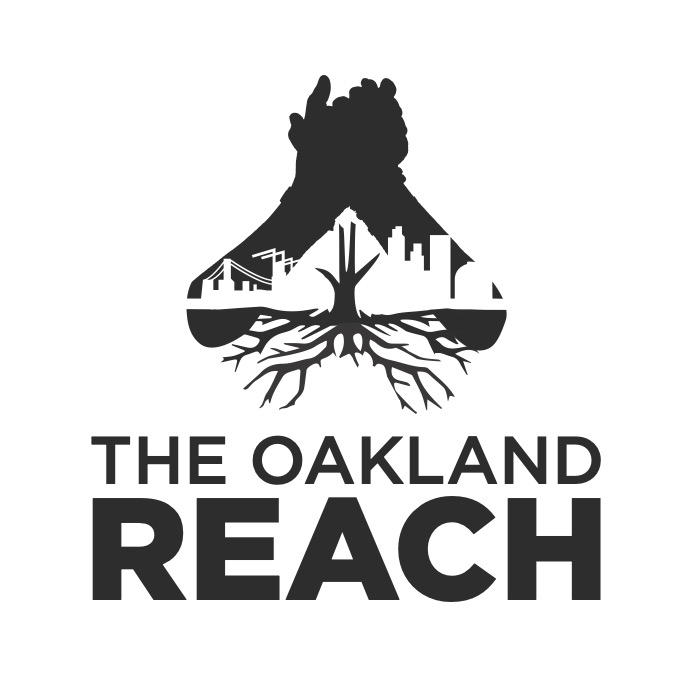
The Oakland Reach
Pilot Solution Providers: Mental Health and Trauma-Informed Practices

7 Mindsets

Care Solace

Cook Center for Human Connections

Hey, Kiddo
Pilot Solution Providers: Real-World Learning

Big Picture Learning
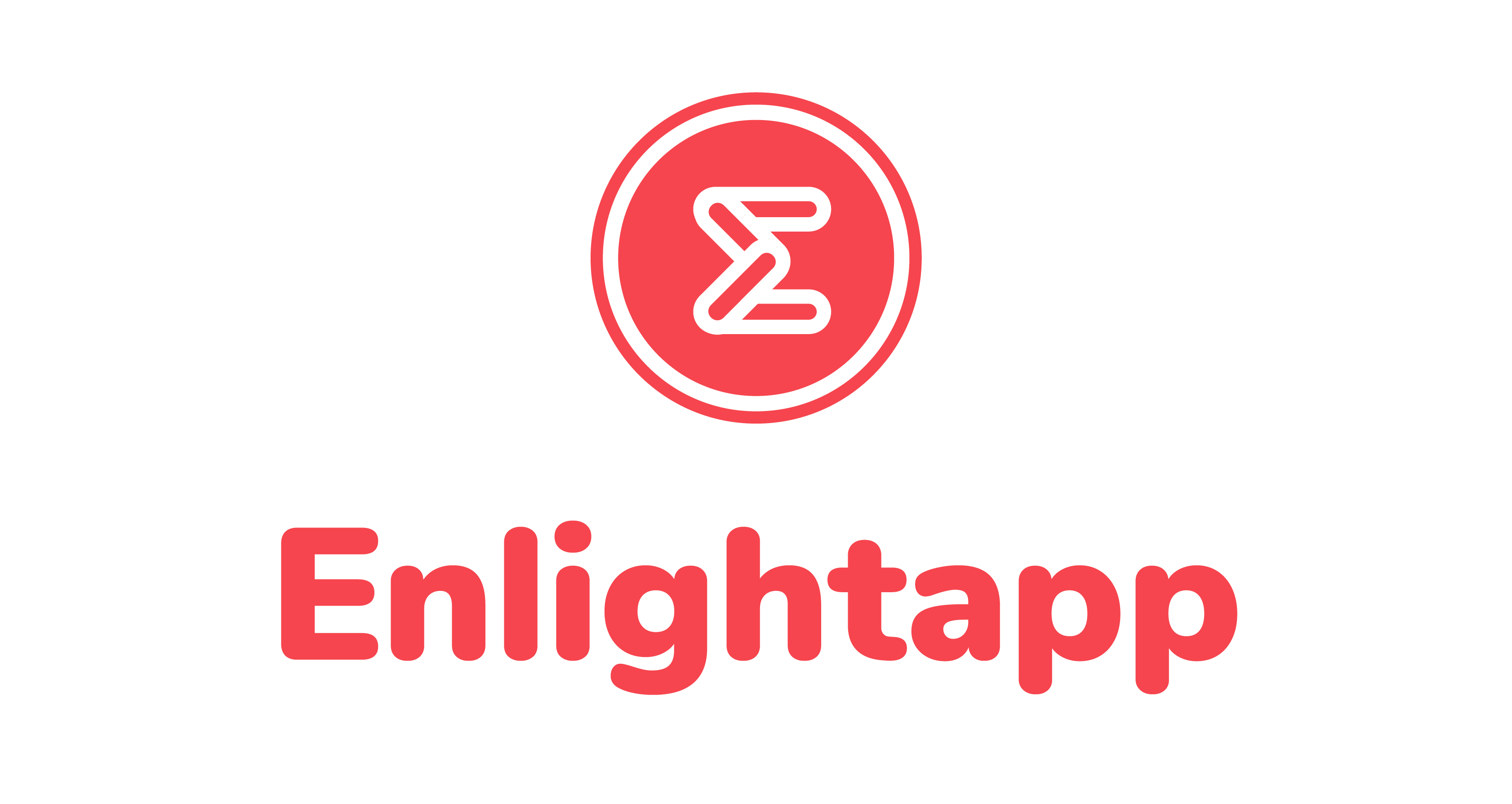
Enlightapp
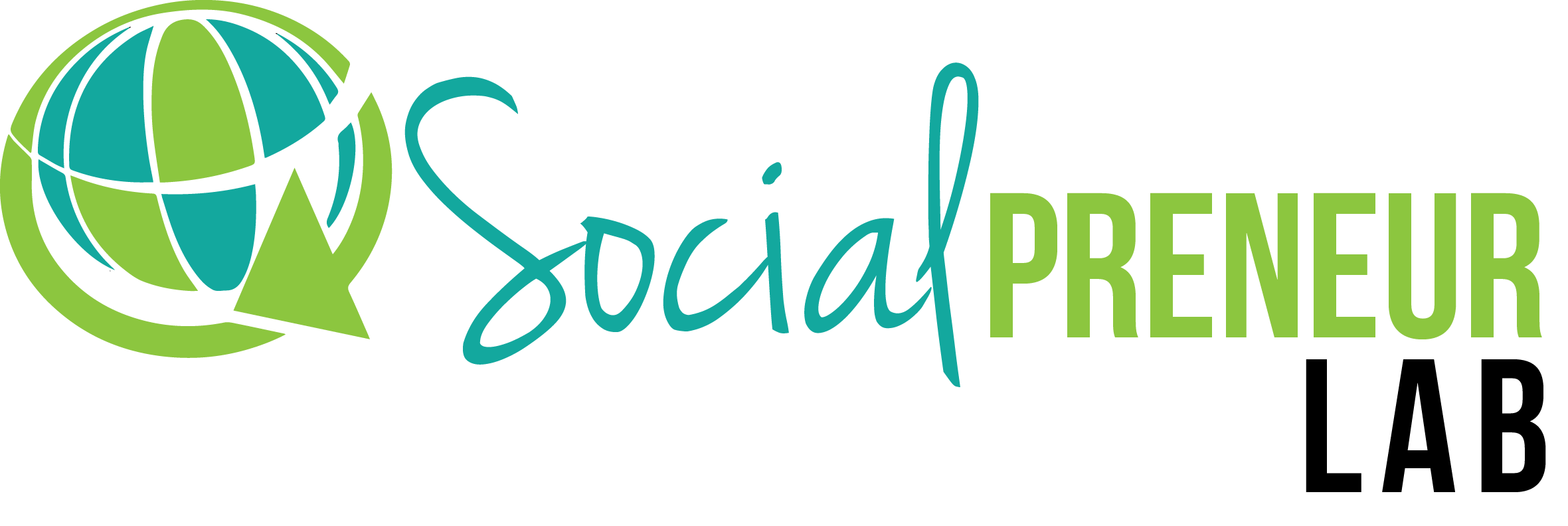
SocialPreneuer Lab
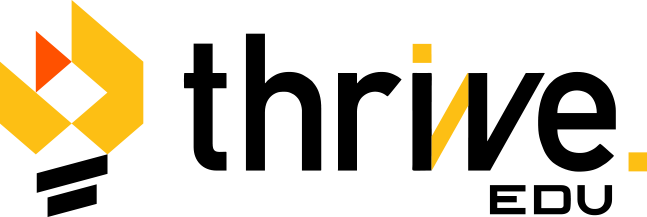
WeThrive EDU
Pilot Solution Providers: Social Studies Salon

Design for Change USA
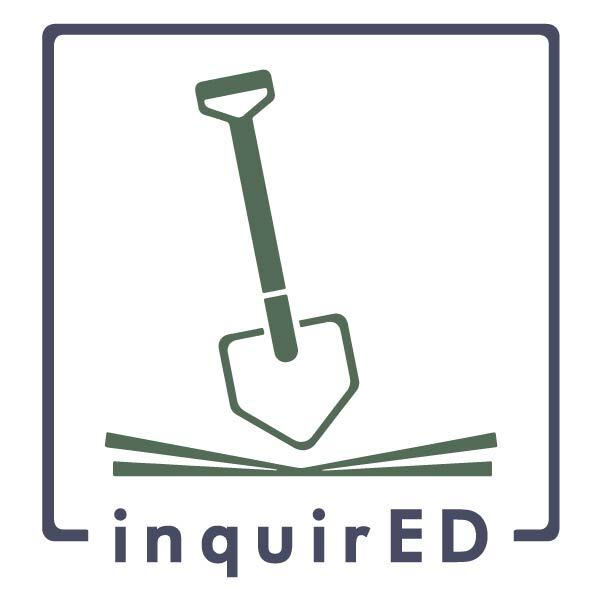
InquirED
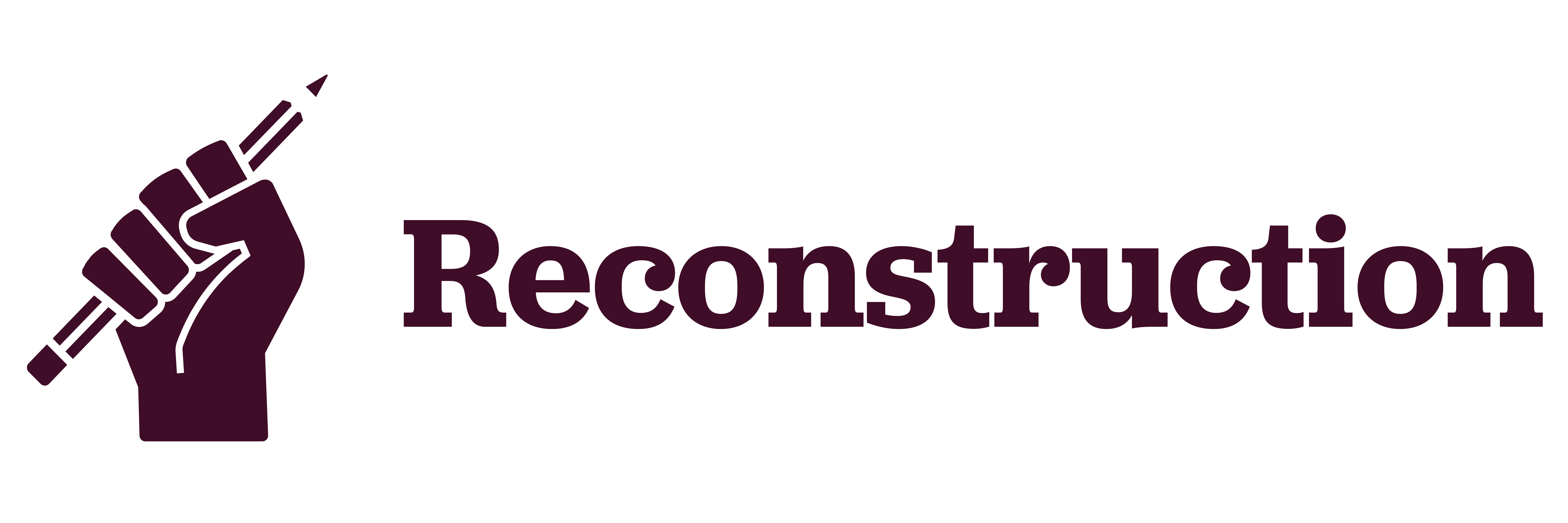
Reconstruction
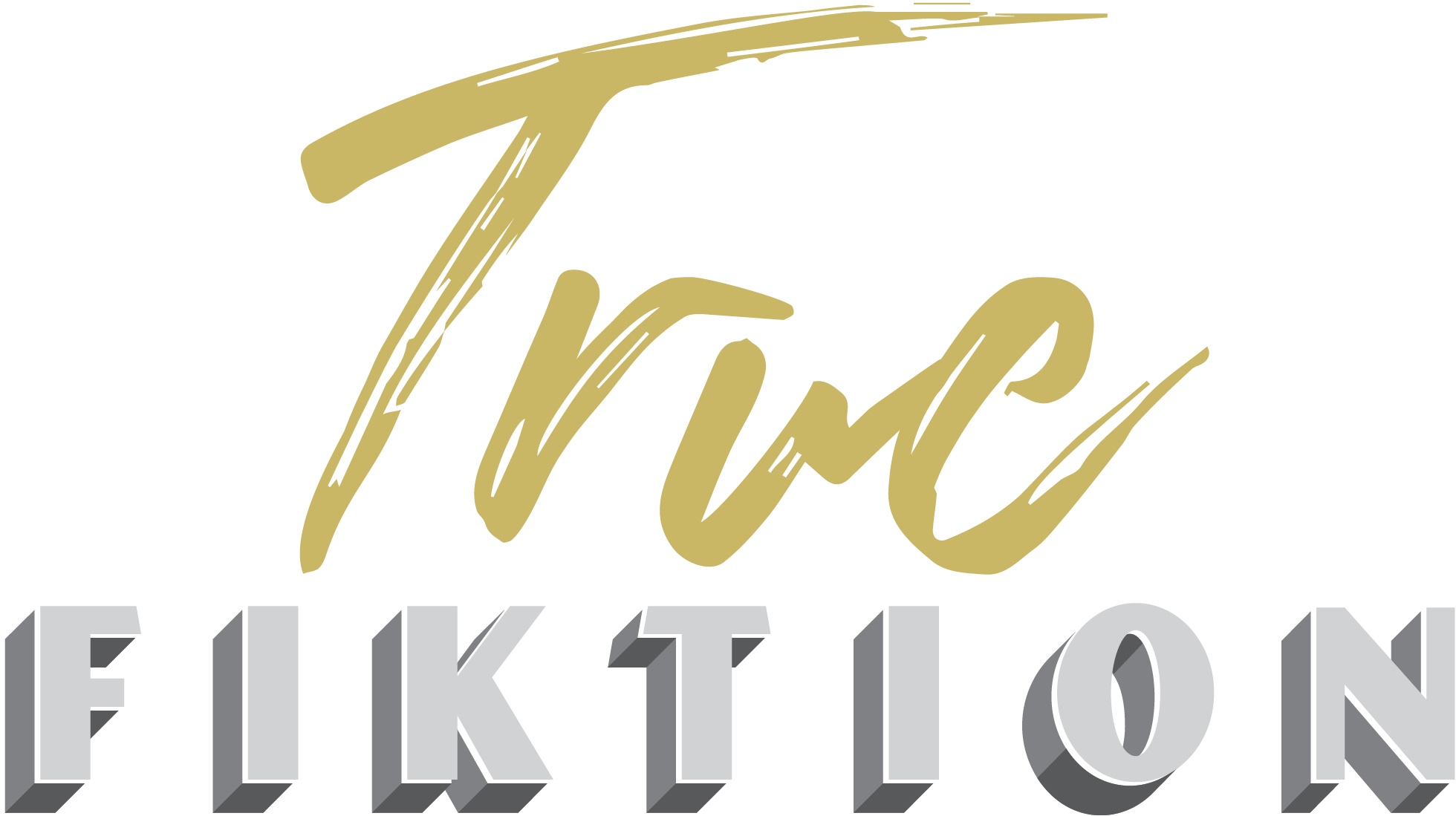
TrueFiktion
Pilot Solution Providers: Social Studies Uncut Showcase

Design for Change USA
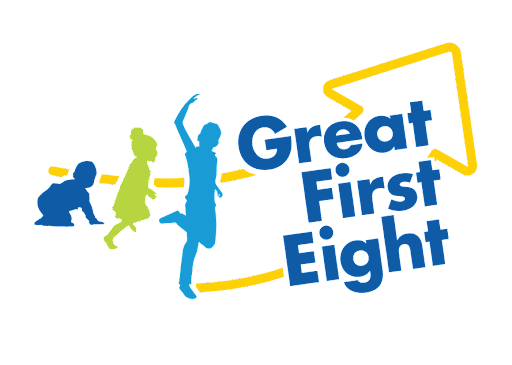
Great First Eight
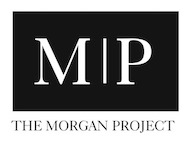
The Morgan Project

Reconstruction
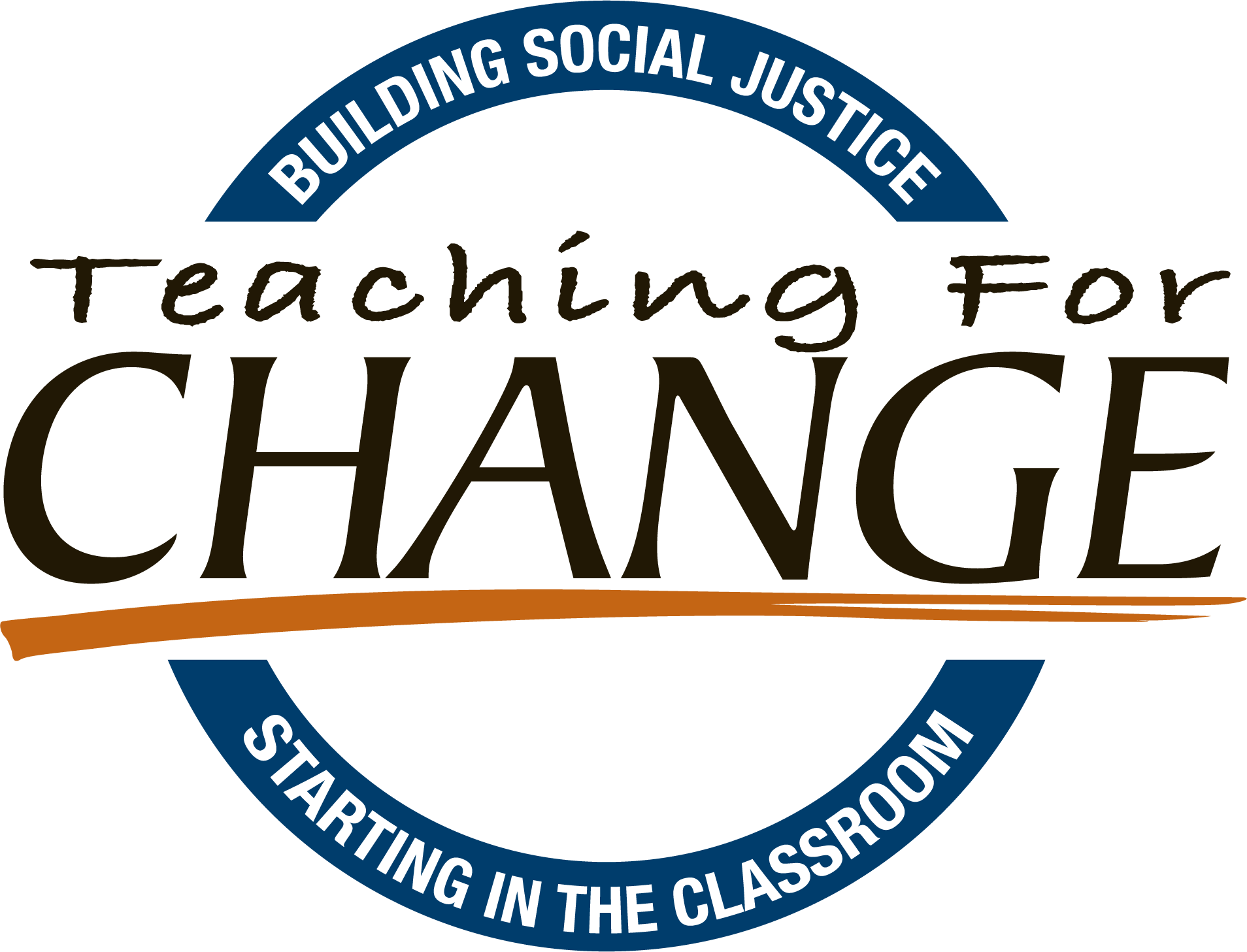
Teaching for Change

TrueFiktion

We want to hear from you!
Please take this 5-minute survey and help us serve you better.
